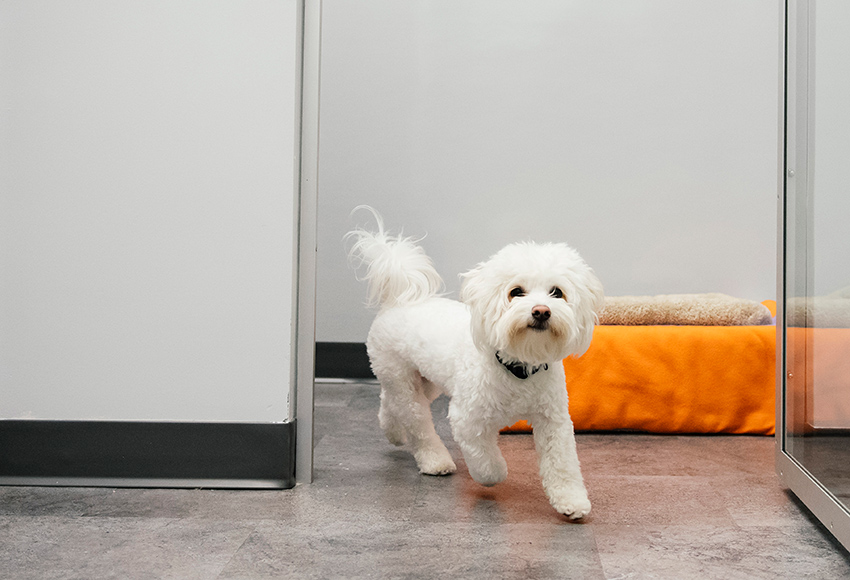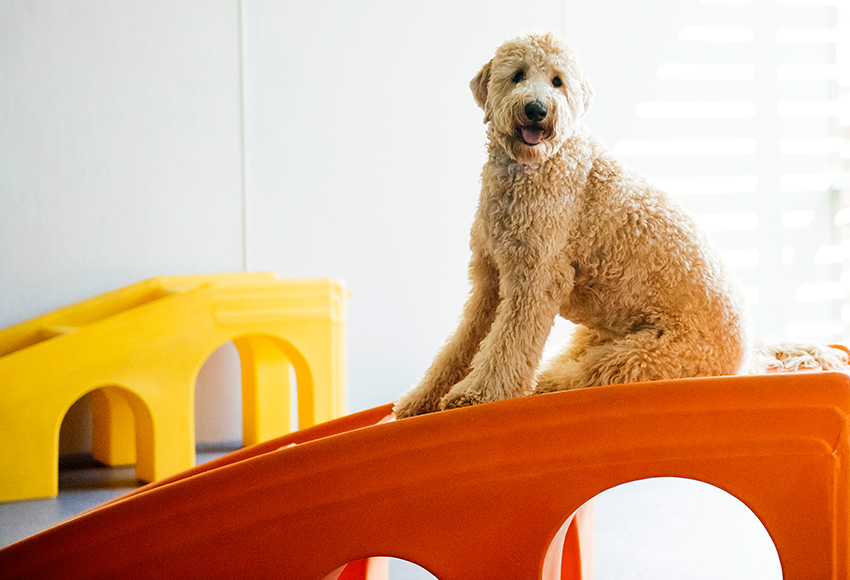Let’s Talk Socialization

It’s all about introducing your pup to a variety of people, animals, environments, and experiences in a fun and positive way. The goal? To help them feel more comfortable and confident as little adventurers, ready to tackle whatever comes their way!
When dogs are well-socialized, they’re less likely to exhibit fear or aggression in new situations, making them happier and more relaxed companions. Imagine a pup who greets new friends with relaxed body language instead of a nervous bark—that’s the magic of socialization! Plus, a confident dog is more adaptable and less anxious, which means more tail-wagging fun for everyone!
While the first 16 months of life are super important for socialization, it doesn’t stop there! Adult dogs see many benefits from socializing even after they have surpassed the puppy stage. Ongoing adventures and new experiences keep those social skills sharp. By making socialization a priority, you’re setting the stage for a well-adjusted, confident canine buddy who’s ready to explore the world with you.
How Does Socialization Fit into Dog Training?
- Foundation of Training: Socialization is often considered the foundation of a dog’s training. Without it, other training efforts might be less effective, because a less socialized dog can become distracted or overstimulated much more easily.
- Integration with Commands: Once a dog is socialized, training commands can be more easily integrated into their daily interactions. For example, a dog that is comfortable around other dogs can be more easily taught to recall or sit in the presence of distractions.
- Positive Reinforcement: Socialization often involves positive reinforcement, a key principle in dog training. Rewarding a dog for calm and positive behavior in new situations helps reinforce those behaviors and builds a positive association with the experience.
- Ongoing Process: Socialization is an ongoing process that continues throughout a dog’s life. Continuous exposure to new experiences and environments helps maintain and enhance a dog’s social skills.
Practical Tips for Socialization:
- Start Early: Begin socialization as early as possible, ideally when the dog is a puppy, but older dogs can also benefit from new experiences.
- Gradual Exposure: Introduce new experiences gradually and at the dog’s pace to avoid overwhelming them.
- Positive Experiences: Ensure that all new experiences are positive by using treats, praise, and play. Avoid exposing the dog to overly stressful situations.
- Diverse Interactions: Expose the dog to a variety of people, other animals, environments, and stimuli to ensure they are well-rounded.
How Can Dogtopia Help Socialize My Dog?
Dog daycare is an amazing place for your pup to make new pals and learn the ropes of doggy socialization! In this lively playground, pups get to romp around with all kinds of breeds and personalities, helping them build essential social skills while having a blast! Through exciting, supervised play and engaging activities, your dog will master the art of communication, sharing, and navigating the wonderful world of doggie interactions. With regular playdates alongside other friendly pups and loving humans, your dog will have a tail-wagging good time while growing into a confident, well-behaved companion. Bring your pup to our top-notch dog daycare, Dogtopia of Franklin Village and watch their personality shine!
Dogtopia of Franklin Village is conveniently located near Stop & Shop, Marshalls, and Papa Gino’s. We are open seven days a week from 7am-7pm.
Book your pup’s temperament test HERE. We would love to have you join our pack!






![Certified coaches playing with five dogs at Dogtopia of [location] daycare.](https://s3-prod.dogtopia.com/wp-content/uploads/sites/217/2018/12/Daycare-playroom-80x53.jpg)
